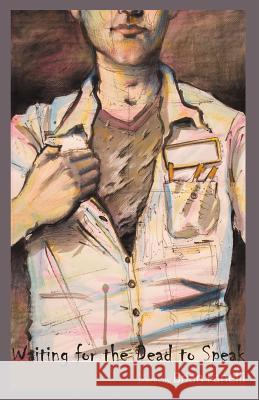Waiting for the Dead to Speak » książka
Waiting for the Dead to Speak
ISBN-13: 9781630450250 / Angielski / Miękka / 2016 / 104 str.
Poetry. WAITING FOR THE DEAD TO SPEAK merges the personal with the political. In this, his second full-length book of poems, Fanelli artfully recounts coming-of-age narratives that recall the poet's encounter with schoolyard bullies while also addressing post-9/11 America, global terrorism, Ferguson, Black Lives Matter, and widening economic inequality. The poems in this book beg for a protest movement or some leader to rise up and address the unraveling American dream and unfettered capitalism. Fanelli also references 1970s punk rock pioneers like The Clash and applies the band's four-chord tracks to current injustices. Other cultural references include Bruce Springsteen, James Dean, The X-Files, and horror movies, often to draw a connection between the poet and his industrial northeastern Pennsylvania hometown or the connection between the poet and his father. Often, the references serve as a way to show that despite differences, there are always some commonalities and shared interests between father and son. At the heart of the book is a questioning of what remains once loved ones depart or relationships dissolve, in particular ways in which past relationships impact the present.
Winner of the 2017 Devil's Kitchen Reading Award, Waiting for the Dead to Speak merges the personal with the political. In this, his second full-length book of poems, Fanelli artfully recounts coming-of-age narratives that recall the poet's encounter with schoolyard bullies while also addressing post-9/11 America, global terrorism, Ferguson, Black Lives Matter, and widening economic inequality. The poems in this book beg for a protest movement or some leader to rise up and address the unraveling American dream and unfettered capitalism. Fanelli also references 1970s punk rock pioneers like The Clash and applies the band's four-chord tracks to current injustices. Other cultural references include Bruce Springsteen, James Dean, The X-Files, and horror movies, often to draw a connection between the poet and his industrial northeastern Pennsylvania hometown or the connection between the poet and his father. Often, the references serve as a way to show that despite differences, there are always some commonalities and shared interests between father and son. At the heart of the book is a questioning of what remains once loved ones depart or relationships dissolve, in particular ways in which past relationships impact the present.











